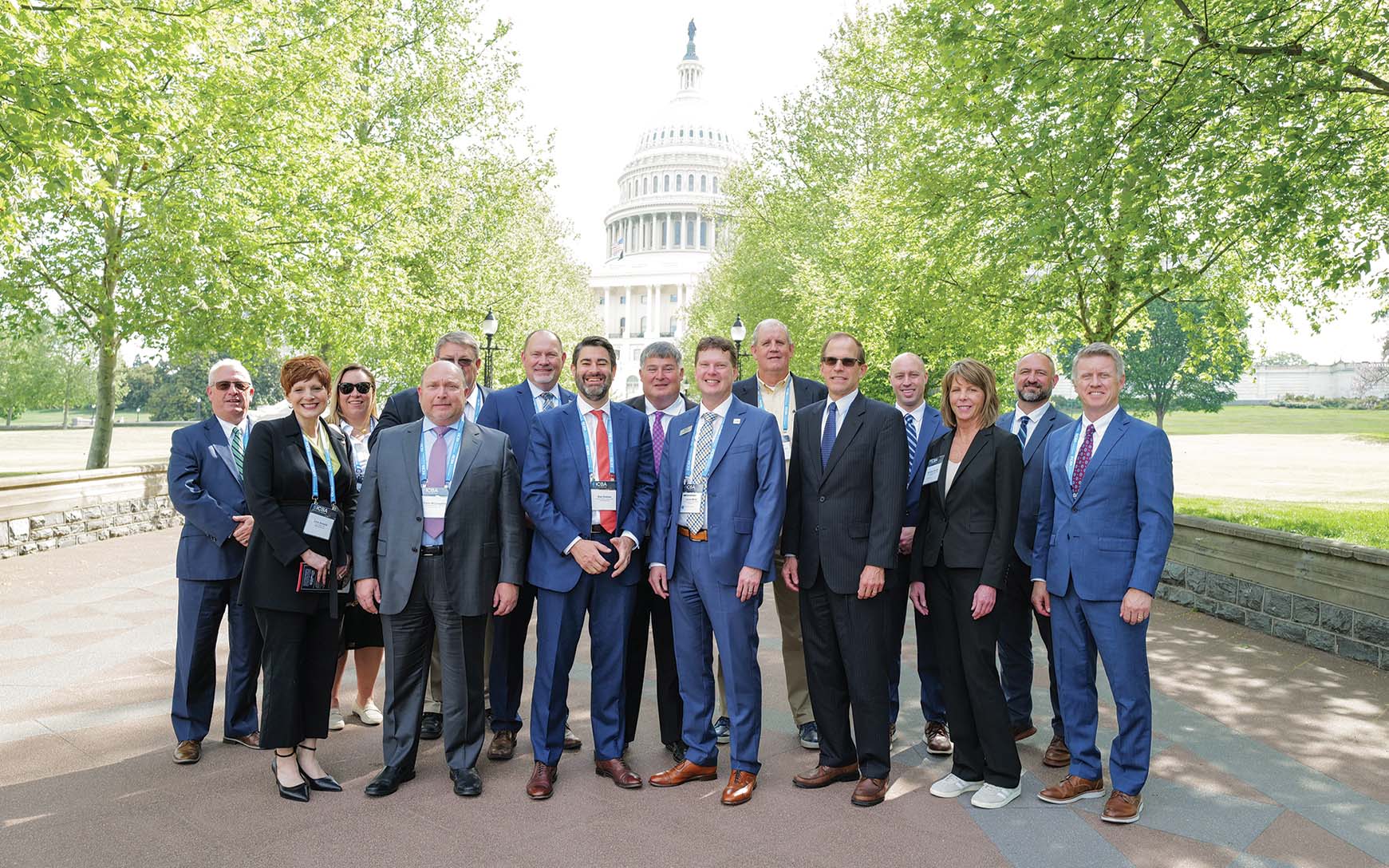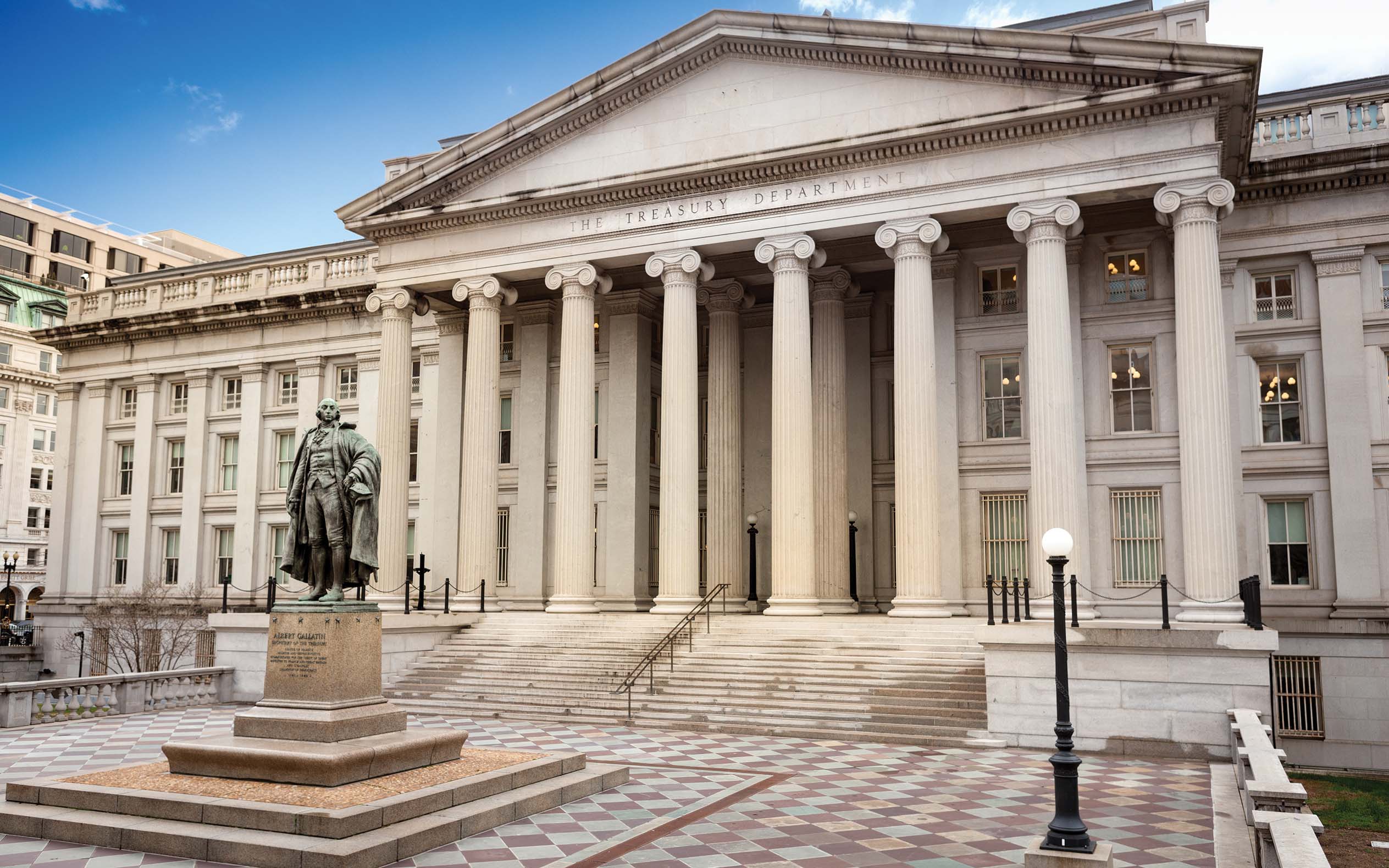As lawmakers and regulatory bodies discuss their approach to managing climate-related rules, disclosures and oversight, ICBA pushes back against regulations that could prove disadvantageous to community banks, advocating for alternative measures.
Jenna Burke: Leading the climate risk charge
0822 capitol building 2k
August 01, 2022 / By Jenna Burke
As lawmakers and regulatory bodies discuss their approach to managing climate-related rules, disclosures and oversight, ICBA pushes back against regulations that could prove disadvantageous to community banks, advocating for alternative measures.
When it comes to monitoring the risk of their lending and investment portfolio, community banks are experts—and they don’t need more regulation to manage potential climate risks.
That’s the message ICBA has been repeating for the past year as federal regulatory agencies gather comments and begin considering rules about climate risk management and disclosure. By teaming up with state community banking associations to raise our voices, ICBA is leading the fight against the potential for new rules that would burden Main Street while doing little to enhance risk management at community banks.
Moving quickly on climate risk
In May 2021, the Biden administration issued an executive order directing the Treasury Department to engage with the Federal Stability Oversight Council to assess climate-related risk to safety and soundness. The Council came back with a report five months later that asked federal regulators to explore climate-related risks within their mandates.
The response was swift. Within two months, the Office of the Comptroller of the Currency (OCC) requested public feedback on its Principles for Climate-Related Financial Risk Management for Large Banks. The Federal Deposit Insurance Corporation (FDIC) did the same this June. While the agencies say that any new rules would only apply to banks with more than $100 billion in assets, history suggests that community banks would be affected too, as ICBA was quick to remind the agencies.
Along with 44 state banking groups, ICBA wrote to the FDIC to share collective concerns that the agency’s proposed climate risk management framework for large banks could choke off lawful but climate-disfavored industries from the banking system. ICBA also expressed concern that the framework would eventually, and inappropriately, trickle down to community banks.
“We vehemently oppose the FDIC or any financial regulator using the banking system to advance a climate agenda by pressuring banks to choke off select customer or industry access to credit,” the coalition stated. “Banks should have the ability to lend to any consumer or corporate citizen who is creditworthy and engaged in lawful activity, without fear of political or regulatory retribution.”
ICBA also sent detailed, 10-page letters of its own to both the OCC and FDIC outlining its objections to the draft principles. They include:
Lack of empirical data
Neither the OCC nor the FDIC have published independent empirical data to support the conclusion that climate-related financial risk is a threat to bank safety and soundness. ICBA encourages the agencies to conduct further studies to better understand whether historical bank data supports the conclusion that climate risks are a significant threat to the safety and soundness of the financial system, and whether a separate climate-related financial risk management framework is necessary.
Choking off legal industries from the banking system
Applying risk management principles broadly without guidance as to what constitutes material climate-related risk exposures creates a real concern that examiners could pressure banks to terminate business relationships and decline banking services to entire categories of industries the agencies believe may present climate risk. ICBA encourages the OCC and the FDIC to make clear that climate risk management guidance will not facilitate “Operation Chokepoint” and there will not be a supervisory expectation to de-risk climate disfavored industries or customers from lending portfolios.
Meanwhile, the Securities and Exchange Commission (SEC) proposed in April a rule for the enhancement and standardization of climate-related disclosures for investors. The new reporting requirements, which the SEC estimates would cost businesses $10.2 billion to implement, would apply to all publicly traded companies, including community bank registrants.
Under the rule, all companies would be required to report their greenhouse gas emissions, and those companies deemed “large accelerated filers” would also be required to report greenhouse gas emissions from their third-party vendors and customers. Because some community banks are large accelerated filers, the SEC’s proposal unfairly applies a one-size-fits-all framework to community bank registrants and to the nation’s largest, most systemically important financial institutions.
ICBA has urged the SEC to align with the FDIC and the OCC and fully exempt all community bank registrants with fewer than $100 billion in assets from any climate disclosure framework, and at a minimum, exempt community bank registrants from any proposal that would require the collection of greenhouse gas emissions data from bank customers.
ICBA will continue to oppose any climate risk regulation that adversely impacts community banks and their ability to support their communities and customers.
Subscribe now
Sign up for the Independent Banker newsletter to receive twice-monthly emails about new issues and must-read content you might have missed.
Sponsored Content
Featured Webinars
Join ICBA Community
Interested in discussing this and other topics? Network with and learn from your peers with the app designed for community bankers.
Subscribe Today
Sign up for Independent Banker eNews to receive twice-monthly emails that alert you when a new issue drops and highlight must-read content you might have missed.
News Watch Today

Join the Conversation with ICBA Community
ICBA Community is an online platform led by community bankers to foster connections, collaborations, and discussions on industry news, best practices, and regulations, while promoting networking, mentorship, and member feedback to guide future initiatives.













